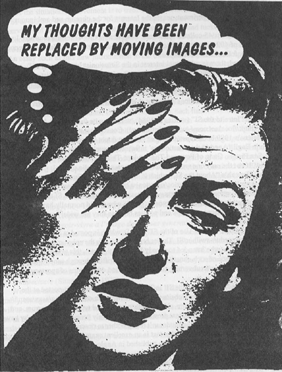
My love for noir has continued with James Ellroy's "Brown's Requiem." Ellroy, whose most famous work is "LA Confidential (which was turned into an excellent movie)" tells the story of Fritz Brown a former LAPD officer who now works as a repo man in poor neighborhoods. His job as one of the bottom dwellers in the ghetto changes when he is hired by a golf caddie by the name of Fat Dog. The crazed caddie is misogynistic, racist, and deeply obsessed with his cello playing sister who lives with an older jewish man who pays the rent. Brown follows the sister around, and successfully sleeps with her. After dipping his wick in once he's in love (L-U-V) and goes out to try to thwart Fat Dog's maniac plans for his sister and the jewish benefactor. The story unfolds with soap opera style. Relationships aren't as clear as they might seem and lies beget lies which is typical par for the course in Ellroy's novels. The book was thankfully shorter than "LA Confidential" but didn't tell as much of a sweeping story. The writing is similiar as Ellroy's later works but is a bit more straightforward. An interesting quirk in Fitz Brown is his love of classical music which ties nicely into the most recent book I finished by James Cain, another author of the hard-boiled style. Cain is well known for noir classics; "The Postman Always Rings Twice" and "Double Indemity." Cain is not as well known for his proto-feminist novel "Mildred Pierce," which recently was turned into an HBO movie series.
While Cain is considered a hardboiled writer his novels are more dense and substative than the traditional mystery to which the style is associated. I finished "Three by Cain: Serenade, Love's Lovely Counterfeit, and The Butterfly," today. Of the three only "Love's Lovely Counterfeit" falls into the classical realm of noir fiction with its associations with crime, murder, femme fatales, and soulless men. As stated earlier Fitz Brown loves classical music as does the lead character of "Serenade" a wholly interesting tale of a former opera singer whose voiced cracked and so with no talent and luck ended up in Mexico. The washed up talent ends up falling in love with a mexican prostitute. He finds his ability again and regains status as a talented voice. With fame comes problems as his past life catches up to him, specifically in the form of a former male lover who pushed the protagonist too hard and made his voice/self crack. A battle of over the love and attention of the protagonist occurs between the female mexican prostitute and the well to do male lover. This tale was especially interesting as many noir tales tell little of homosexuals. Of course the homosexual was indighted as evil, but there were also obvious ways in which the antagonist was helpful for the protagonists life and on the flip side is the protagonists love affair with a mexican prostitute which is not exactly wholesome.

Cain continued to push the boundaries of what is wholesome in his tale "The Butterfly," which was originally published in 1946. This tale follows Jess, a god fearing man in the mining hills of Apalachia. Jess' grown daughter comes back home to live with him and he is seduced by her into making liquor, defending her honor, and eventually sleeping with her. It is revelead that he is not her father which only encourages him to bang her more. There's few tales that point at incestous lifestyles and pedepholia, perhaps Lolita being the only other that comes to mind and it was certainly interesting that Cain wrote the story considering Cain's other pieces but reading these "Three by Cain," continues to show me the breadth of Cain's work.
Lastly I've seen "Drive," a new release in theatres that follows Ryan Gosling as "The man with no name" who works as a stunt driver for movies in LA and moonlights as a getaway driver. Gosling falls for the girl next door and her son and when the girl's husband comes home he must do job that goes wrong in order to protect the family. Gosling goes on a knight's quest to protect the girl which is disgustingly noble and excitedly violent. The film is accompanied by an excellent synthpop score reminscent of Synth Britania and of course the entire film is a nod to JG Ballard.
Particularly enthralling is the slow cinematography that creates a constant feeling of transportation throughtout the movie. When a character is standing still there is still movement as if the character is always in motion, on a highway. It is probably the best movie I've seen this year. Certainly better than Harry Potter!!!



